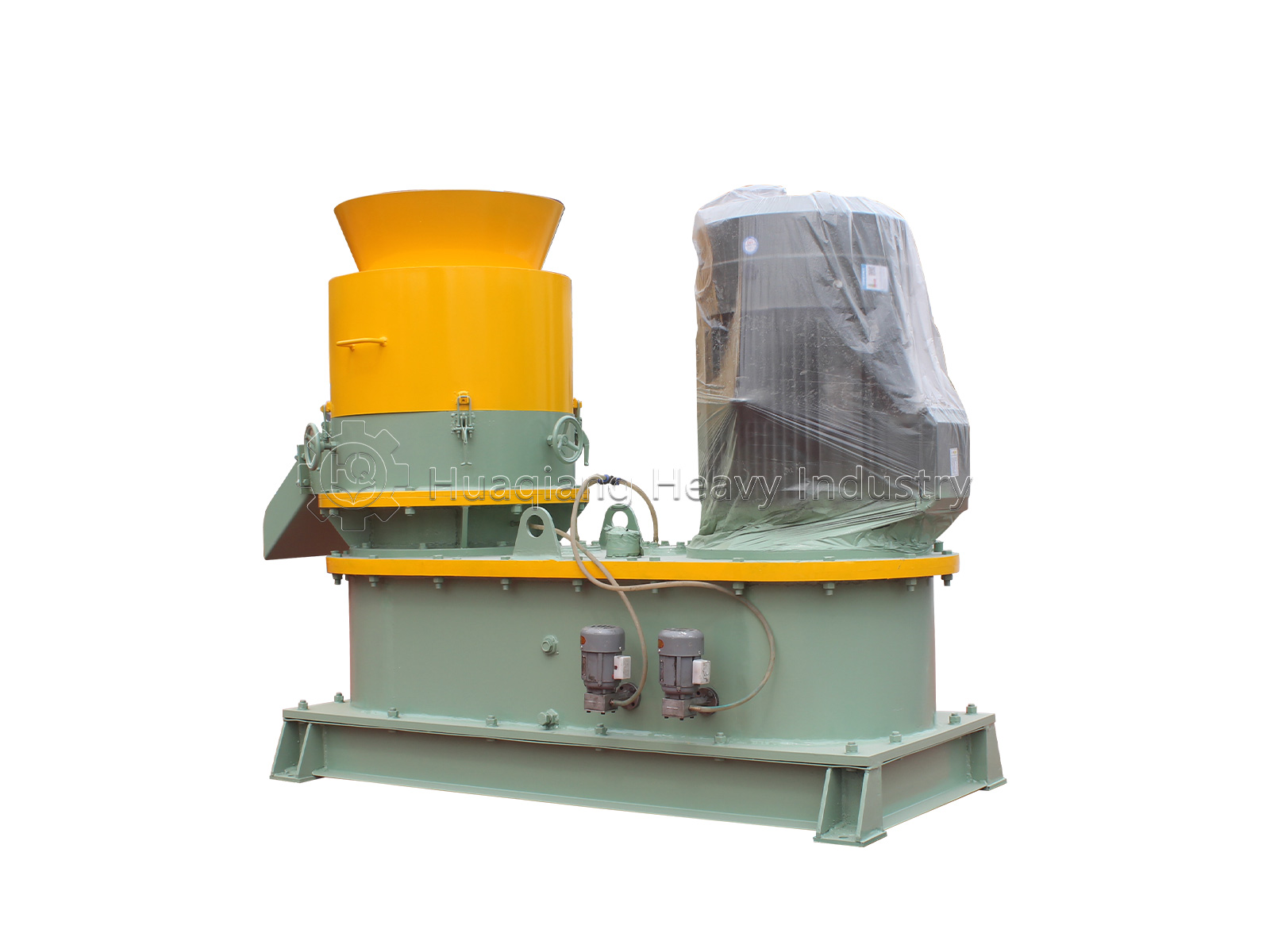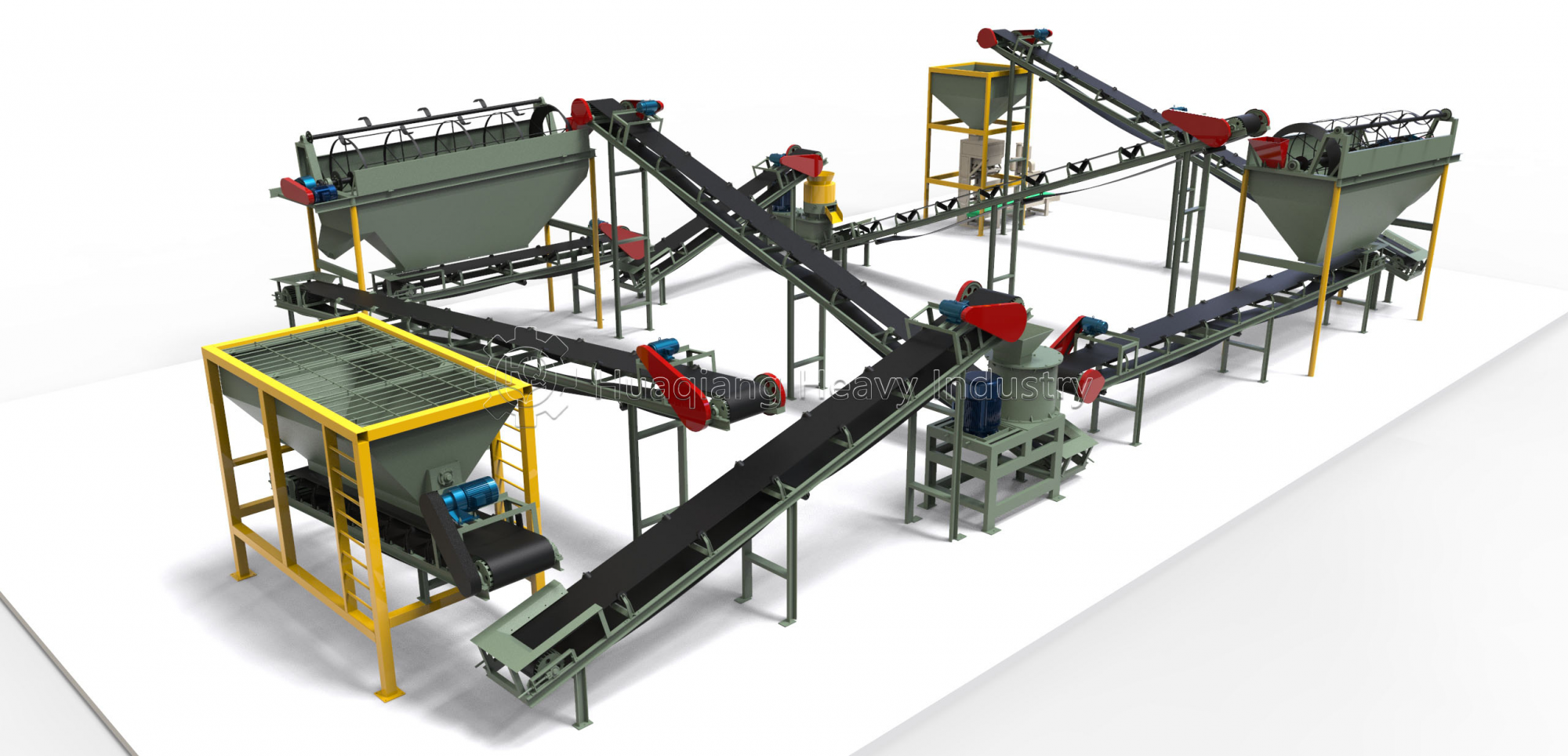2025-07-14

In the field of organic and bio-fertilizer production, flat die granulators are widely popular due to their unique working principle and excellent adaptability. But what exactly are the characteristics of this equipment? What types of raw materials is it suitable for processing? Which fertilizer manufacturers should consider choosing it? And what are the features of the fertilizer granules it produces?
Flat die pellet mills are key equipment in both organicproduction lines and biofertilizer production lines, converting powdered organic materials or microbial-enriched mixtures into uniform pellets. They ensure efficient granulation while preserving nutrient content and microbial viability, making them essential for sustainable fertilizer manufacturing.
The flat die granulator plays a crucial role in the organic fertilizer production process by converting powdered organic materials into uniform granules. Using a flat die and rollers, it compresses the raw mixture under high pressure, forming dense, evenly sized pellets. This improves fertilizer handling, storage, and slow-release properties while reducing dust and waste. The granulator operates efficiently at room temperature, preserving nutrient content, and is ideal for small to medium-scale organic fertilizer production.

Flat die granulators use vertical pressure granulation principle and have the following notable features:
· Gentle granulation process: Low-temperature and low-pressure operation, especially suitable for raw materials containing active microorganisms or heat-sensitive components
· High adaptability: Can process raw materials with higher moisture content (20-40%), reducing pre-drying steps
· Low energy consumption: 30-50% less energy consumption compared to other granulation methods
· Simple operation: Concise structural design, easy maintenance, suitable for continuous production
Flat die granulators are particularly suitable for the following types of raw materials:
· High organic content: Livestock manure, food waste, agricultural waste, etc.
· Fibrous materials: Straw, wood chips, mushroom residue, etc.
· Materials with moderate viscosity: Neither requiring additional binders nor excessively sticking to the mold
· Containing active ingredients: Such as microbial agents, enzyme preparations and other bioactive substances
The following types of fertilizer production enterprises should most consider flat die granulators:
· Specialized organic fertilizer producers: Especially those focusing on high-quality organic fertilizers
· Small and medium-sized bio-fertilizer plants: Relatively low investment threshold, suitable for startups
· Manufacturers emphasizing product bioactivity: Need to preserve beneficial microorganisms in raw materials
· Enterprises with diversified production needs: The same equipment can produce multiple formula products
Fertilizer granules produced by flat die granulators have the following unique advantages:
· Good granule uniformity: Typically 3-8mm in diameter, adjustable length
· Moderate hardness: Maintains transport integrity while being easy to decompose in soil
· Appropriate porosity: Beneficial for microbial activity and moisture exchange
· Relatively rough surface: Increases contact area with soil, improving application effectiveness
· Complete nutrient retention: Low-temperature process maximizes retention of raw material nutrients
With its gentle processing method and excellent raw material adaptability, the flat die granulator has become the ideal choice for organic and bio-fertilizer production. For producers pursuing product quality, emphasizing bioactivity preservation and with limited budgets, this equipment provides a perfect solution. With the rapid development of global organic agriculture, flat die granulation technology is bound to gain broader market space.